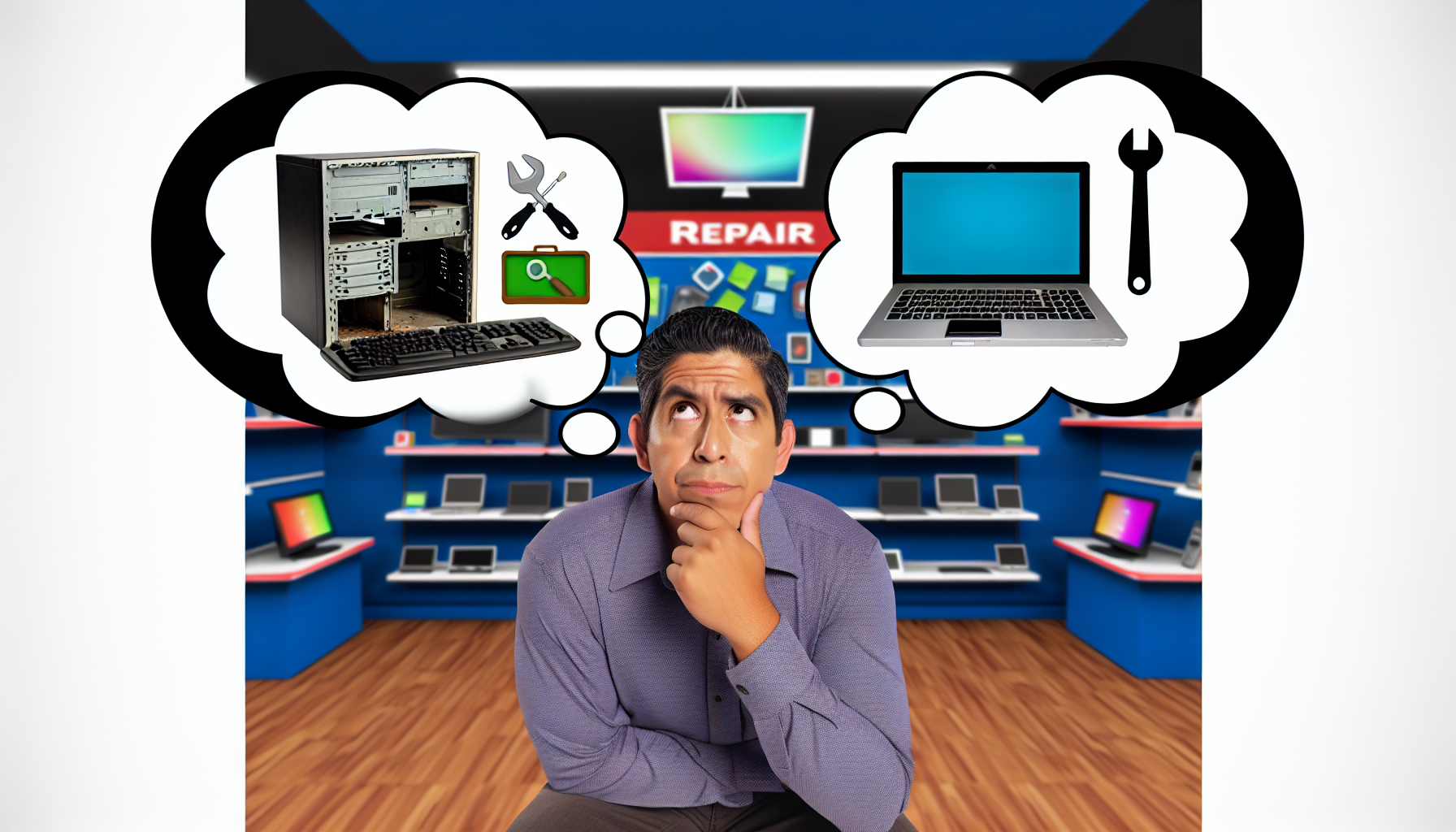In the rapidly evolving world of technology, the question of whether to upgrade, repair, or replace an old computer is one that many users face. Understanding the nuances of each option can help you make an informed decision that balances both your budget and your needs. This article will explore the pros and cons of upgrading and repairing your computer, providing valuable insights to help you determine whether it’s time for a replacement.
When Is Upgrading the Right Choice?
Upgrading a computer typically involves enhancing its existing components, which can lead to improved performance without the need for a complete replacement. Here are key considerations when contemplating an upgrade:
1. Performance Improvement
If your computer is experiencing slow performance but can still run your required applications, an upgrade may solve the issue. Common upgrades include:
- RAM (Random Access Memory): Increasing your RAM can dramatically enhance multitasking capabilities and overall speed.
- Storage: Replacing an old HDD with an SSD (Solid State Drive) can significantly improve boot times and load times for applications.
- Graphics Card: For gamers or creative professionals, upgrading the GPU can enhance visual performance.
2. Cost-Effectiveness
Upgrades often offer a more cost-effective solution compared to buying a new machine. Depending on the components, you can achieve significant performance boosts without the hefty price tag of a new computer.
3. Compatibility
Before upgrading, ensure that your motherboard and other existing components are compatible with the new parts. Researching compatibility can save you from making a poor investment.
4. Lifespan Extension
Upgrading certain components can extend the lifespan of your computer. It can receive a performance boost, allowing it to meet your needs for years to come.
5. Environmental Impact
Choosing to upgrade instead of replace aligns with more sustainable practices, reducing electronic waste.
When Is Repairing a Better Option?
Repairing a computer involves fixing specific issues that hinder its performance, as opposed to adding new components. Here are instances when repairs might be the best choice:
1. Specific Issues
If your computer is malfunctioning due to a specific hardware failure (like a broken screen or power supply), repairing it may be a straightforward and cheaper option than buying a new machine.
2. Limited Budget
If you’re on a limited budget, repairing minor issues can keep your computer running without significant financial strain. However, consider the long-term prospects of doing so.
3. Software Issues
Many users underestimate the impact of software on performance. If your computer is acting sluggishly due to software problems (e.g., viruses, outdated operating systems, or excessive background applications), a repair focusing on software may be more relevant.
4. Basic Tasks
For users who only perform basic tasks (like browsing the internet, emailing, and word processing), repairing might suffice to keep their machines functional without needing high-end specifications.
5. Priceless Data
If your computer has crucial information stored that hasn’t been backed up, repairing it could be the best option until you have time to transfer the data.
When Is It Time to Replace?
While upgrading and repairing can extend the life of your computer, there comes a time when replacement is the most logical option. Here are some signs indicating it may be time for a new computer:
1. Age of the Device
If your computer is older than five years, it may struggle to keep up with modern applications and operating systems. Technology advances quickly, and older hardware may not be capable of supporting the software you need.
2. Frequent Repairs
If you find yourself constantly repairing or upgrading parts, it may be more cost-effective to invest in a new computer rather than continuing to fix an aging machine.
3. Compatibility Issues
If new software updates or operating systems are incompatible with your hardware, it can severely limit your capabilities. It may be more efficient to replace rather than upgrade.
4. Performance Bottlenecks
If even after upgrades your computer struggles with basic tasks (like running essential applications), it might be time to consider new hardware.
5. Obsolete Technology
Older computers lack features that newer models provide, such as faster USB ports, better Wi-Fi capabilities, and improved energy efficiency.
Cost Analysis: Compare the Options
Upgrading:
- Average costs can range from $50 to $500 depending on the component.
- Enhancements can provide performance boosts similar to new models.
Repairing:
- Repairs generally cost between $50 and $300, depending on labor and the issue’s severity.
- It is a temporary fix if further issues are likely to arise.
Replacing:
- New computers can range from $300 to several thousand dollars.
- Can be a comprehensive solution if performance issues are severe.
Conclusion
Deciding between upgrading, repairing, or replacing your old computer requires careful consideration of your needs, budget, and the specific issues at hand. If your computer still meets your needs but requires boosts in performance, upgrades may be your best route. If you’re encountering specific hardware failures, repairs could extend its lifecycle. However, if the computer struggles with modern demands or is just too old, it might be time for a complete replacement. Always weigh these factors carefully to make an informed choice.
FAQs
1. How do I know if my computer needs to be repaired or upgraded?
- Assess the symptoms: if it’s slow, freezing, or not supporting software updates, consider what components could support renovations versus direct repairs.
2. How much does it cost to upgrade individual components?
- Costs vary by component; common upgrades range from $50 to $500. An SSD upgrade is a popular choice due to its significant performance impact.
3. Is upgrading worth it for an older computer?
- It often is, but be realistic about the limitations of the existing hardware. It may only prolong its useful life a bit depending on the upgrades.
4. What are the signs that I need to replace my computer?
- Frequent repairs, incompatibility with software and accessories, performance bottlenecks, and the age of the computer all indicate a potential need for replacement.
5. Can I upgrade my laptop?
- Yes, but it’s limited compared to desktops. Upgrading RAM and storage are usually the most viable options for laptops.


